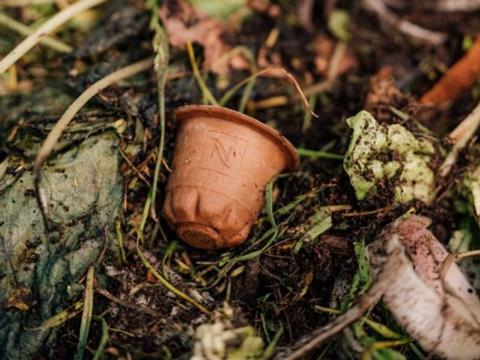
How is Nestlé aiming to make the packaging for its single-serve coffee products circular? Nespresso’s sustainability program manager, Christophe Boussemart, and Nescafé Dolce Gusto’s Susanne Kulhanek explain.
To reduce the pressure on natural resources and to create sustainable growth and jobs, the European Commission adopted the new circular economy action plan (CEAP) in March 2020. The idea is to shift the entire EU from a general linear approach to a circular model at scale.
In our roles, we’re often asked whether coffee capsules can really be part of a circular future - and here’s what we say: Coffee capsules are already showing what a circular future can look like. For us, this means the scale-up and implementation of recycling technologies, for both aluminium and plastic, where valuable material stays “in the loop” and where coffee grounds can be valorised into compost or biogas. It also means encouraging the use of recycled aluminium and plastic, and reducing the overall amount or weight of packaging.
Now, we need to continue and nurture this innovative mindset. Our vision is not to see circularity as a trade-off between recyclable or compostable materials. We must remain interested and curious; this is how we progress and give consumers choice. So, in our pursuit of circularity, what are the key considerations to innovate when it comes to coffee capsules, in order to seize the potential of composting and recycling?
Dare to take a long-term view
Working towards circularity and improving the environmental performance of a pack requires a look at the full value chain. This means the sourcing of material, the design, shelf-life, how the consumer uses it at home, logistics, and also its end-of-life. It’s a challenging process, yet a necessary one in order to progress.
Planning long-term, with a vision to systematically improve for the future, is critical. We cannot just take short-term business decisions. This quite often requires making significant investments within many different areas.
For instance, at Nestlé, just as we have done with aluminium/plastic coffee capsule recycling in the past decades, we are now ready to engage in and support the enabling of a harmonized and scaled collective industrial composting infrastructure.
Never stop to innovate – the holy grail to future resilience and consumer options
Keeping an open mind when it comes to new solutions and materials is crucial. As technology and science are moving fast nowadays, we need to be agile and embrace how innovation can open new avenues, especially for sustainability and circularity. Every step to improve is worth taking. Every innovation that improves environmental performance or that can broaden the range of sustainable options for consumers is worth evaluating. Efforts must be combined.
Our latest innovation is an example of such efforts: last year, we announced our new paper-based capsules/pods, certified for both home and industrial composting, as a complement to our options in aluminium and plastic.
Innovation does not only offer the consumer a choice, but it can also generate new jobs given the numerous stakeholders in the value chain and stimulate economic growth. Having a legal framework - harmonized across the EU Single Market - that fosters sustainable innovation, leaving room for future technical development is pivotal.
Together we are stronger
Deloitte recently found that while consumers’ adoption of sustainable lifestyles is on the rise, they “need more help”. When it comes to coffee capsules – whether they are made using recyclable materials such as aluminium or plastic or using compostable materials – differentiated products and an easily accessible end-of-life infrastructure are crucial, from collection to sorting by material to recycling or composting. We must also ensure that consumers are informed about how to dispose of used coffee capsules/pods. Education was in fact one of the reasons why we initiated UAC.
To make it easier for consumers to adopt sustainable behaviours at scale it is clear that we need to work together; companies, experts, local governments, recycling- and biowaste specialists, and more.
Accelerating sustainable progress
All in all, by having an ambitious long-term vision, and maintaining an open collaborative mindset, together with an enabling regulatory framework, we believe this can, and will, foster and accelerate future sustainable and circular innovations.
If you liked this article, you might also enjoy:
The Lidl approach to packaging sustainability
How did Brazil achieve its 100% aluminium can recycling rate – and can it be replicated in the EU?
Experts have their say on the EU’s Packaging and Packaging Waste Directive revisions
A deep dive into the most important packaging sustainability trends and solutions














No comments yet